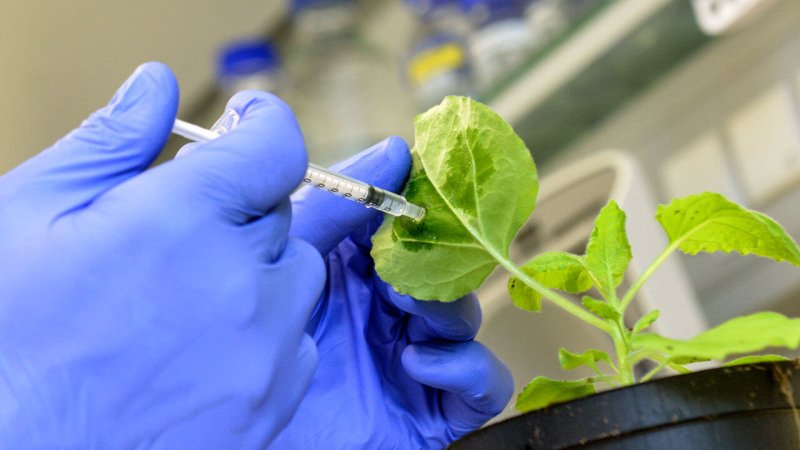Preventing plant-disease outbreaks is an urgent matter — as urgent as having a rapid response strategy for human viruses. The same factors that quickly allow new human viruses to spread world-wide — global trade, traffic, and transport — also allow crop pathogens to spread.
…
Crop “vaccines” could be the answer to fighting off quickly evolving pathogens, without genetically engineering the crop itself.
When a virus infects a plant cell, it often releases RNA — either in the form of messenger RNA or double-stranded RNA — which travels through the cell, helping the virus replicate. The resistance proteins can act like targeted scissors, that find the invader RNA and slice it to small pieces. Those small pieces (small interfering RNAs) are then used by the plant to find and target the viral RNA for destruction.
The sequence of small interfering RNAs can be predicted by computers and synthesized in a lab. The resulting nucleic acid cocktail can be applied directly to plant leaves — as a spray.
Studies are being carried out for these “non-transformative” (i.e. not genetic engineering) approaches to control insects, diseases, nematodes, and weeds, and it is expected that RNAi-based products will reach the market in the form of sprayable products for foliar application, trunk injection, root dipping, or seed treatment as direct control agents soon.































